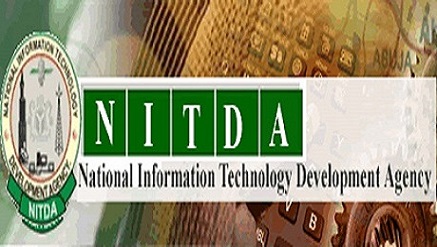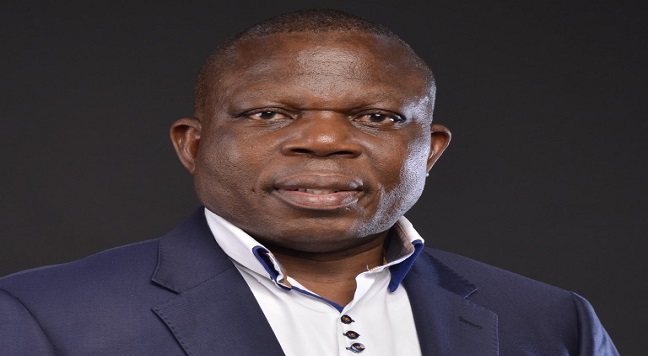News
NITDA, EFCC Forge Alliance, Tighten Noose on IT Procurement Racketeers

National Information Technology Development Agency (NITDA) and the Economic and Financial Crime Commission (EFCC) have forged alliance in order to strengthen the anti-corruption war especially on the procurement of Information Technology, (IT) products and service among the Ministries, Department and Agencies of the Federal Government.
Dr Isa Ali Ibrahim Pantami, the director general of NITDA, disclosed this on Tuesday when he led the management team of the Agency on a working visit to EFCC Headquarter in Abuja.
Pantami stated that the alliance has become imperative in the face of the wanton corruption being perpetrated by MDAs especially in the procurement of IT products and services as most of the projects pass through less scrutiny during budget defense at National Assembly because of the expertise required to ascertain the needs and specifications of these IT requirements.
“Many MDAs consider IT projects as conduit pipes to siphon public funds and I believe partnering with EFCC will bring sanity to the sector and by then the commission will be empowering NITDA in strengthening its regulatory function through which it will also be developing and promoting the local content in the IT sector,” the NITDA boss said.
While suggesting the modus operandi of the partnership, Dr Pantami informed that the two organisations could form a working group which would also serve as a desk to deal with sharp practices in the IT procurement, adding that, “EFCC may help in asking MDAs to produce procurement clearance issued by NITDA during their investigations.
He said NITDA as IT regulatory body in the country, the Agency is responsible for subjecting IT product to value-for-money analysis, reduce projects duplication, justify the spending of public funds on IT projects and to advise MDAs on the alternative options of IT products and service with a view of reducing cost especially on sharing of software among themselves.
The DG who believed that the alliance would strengthen the existing relationship between the Agency and the Commission said “supporting NITDA would go a long way in blocking loopholes in IT procurements.”
In a press release signed by Hadiza Umar, head, Corporate Affairs & External Relations at NITDA, she said the DG commended the EFCC’s Acting chairman for his doggedness, fearlessness and outstanding performance which he has recorded in acting capacity saying the feat could take some people 20 years to achieve as substantive chairman of the commission.
While assuring him of his prayers and goodwill, Dr Pantami stated that Nigeria needs people like Mr Magu who are fearless and do not think of the consequences of their action to move forward as a nation
In his remarks, Mr Ibrahim Magu, the acting chairman of the Commission, who expressed his delight over the visit said that EFCC as Commission “would be complying with NITDA’s request so as to bring some level of sanity to the procurement of IT products and services among MDAs in Nigeria.
He described the partnership as timely especially now that the Commission is on the process of “completely digitalizing the operation of EFCC” adding that he now has place in NITDA to run to when he gets confuse on IT projects under investigations.
Describing corruption as a threat to the unity of Nigeria, the EFCC boss maintained that the Commission cannot fight corruption alone without the consensus of all Nigerians, he pleaded to Nigerians not to be discouraged on the recent corruption case judgments delivered recently
Mr Magu stated that the cause of agitations from different quarters in the country today is because of corruptions that has ravaged the nation. “Absolutely there is a political will to fight corruption and this is not in doubt. This is the time to save this country from the shackles of corruption,” he added
The two organisations agreed to nominate three officials each to constitute the working group and the desk with the term of reference of verifying the IT products and services to be procured with public funds.
News
New Horizons Invests N50m to Empower Almajiris with Skills

New Horizons Nigeria has launched a N50 million initiative aimed at transforming 21 Almajiri children into skilled computer technicians within 90 days, to tackle youth unemployment and harness human potential.

The Almajiri-to-Tech programme, officially launched in Abuja on Monday, provides participants with full training, meals, clothing, tools, and logistics support, all fully funded.
Speaking at the launch, the Chief Executive Officer of New Horizons, Tim Akano, said the programme represents a new journey in the history of Nigeria by restoring the original purpose of the Almajiri system, which he described as “children sent out to seek knowledge.”
“The word Almajiri comes from an Arabic term meaning emigrant and seeker of knowledge. Historically, children were sent to learn morals, responsibility, and skills to add value to society,” Akano said.
He added that the disruption of this system during colonial times forced many children onto the streets, a challenge that persists today.
Akano highlighted the urgency of addressing the Almajiri issue, noting that there are an estimated 15 million Almajiris in the country, with a population growth rate of around three per cent annually.
“If we do not solve this problem as a country, we are sitting on a time bomb,” he warned.
According to him, the programme focuses on hands-on technical skills rather than theory. Trainees will learn to repair mobile phones, laptops, televisions, radios, standing fans, and other electronic devices, as well as build inverter batteries using recycled electronic waste.
“We are not teaching theory. We are teaching practical skills you can use to earn a living,” Akano said, stressing that the programme will not interfere with the participants’ Quranic education.
“We are still going to allow you, within the period of learning. Your learning computer here is not stopping your Quranic education.
“You still have time within our space here. Whenever you want to go and pray, you can pray, then come back to class,” the CEO stressed.
He added that participants will also receive daily meals, water, T-shirts identifying them as technicians-in-training, and access to all necessary tools and equipment throughout the 90-day programme.
Akano said the initiative is part of a larger mission by New Horizons Nigeria, which has spent the past 21 years training about 100,000 Nigerians annually in IT and related skills.
He said the new programme aims to “take human genius off the streets and convert it into human capital, enabling these youths to contribute meaningfully to the economy.”
He added that equipping Almajiris with skills could add 15 million people to Nigeria’s workforce and potentially increase the country’s GDP by as much as $20 billion, stressing that productivity depends on practical skills and opportunity.
“Everything that can be taught can be learned. If someone can memorize the Quran cover to cover, there is nothing that cannot be done. What they lack is information, opportunity, and infrastructure, and we are providing all of that,” Akano said.
Akano also stressed that the initiative is designed to inspire other organizations and government agencies to replicate similar programmes across the country.
“This is not just about 21 children; it is about showing Nigeria what is possible when resources meet intention and planning.
“If we succeed in empowering these Almajiris, we demonstrate that the country can turn social challenges into economic opportunities. It’s a blueprint for Nigeria’s future,” he said, noting that the initiative combines social reform, technical education, and economic empowerment.
Also speaking, one of the trainees, Fatima Umar, appreciated the organisers and promised to maximise the opportunity.
“We’ll make you proud of us. We have nothing to say here but to thank and appreciate you. May Almighty Allah continue to guide and protect you,” Umar said.
News
IMF Upgrades Nigeria’s 2026 Growth Projection to 4.4%

International Monetary Fund has upgraded Nigeria’s 2026 economic growth projection to 4.4 per cent, reflecting improved macroeconomic stability and sustained reforms.

IMF
The January 2026 World Economic Outlook Update forecasts Nigeria’s growth trajectory at 4.1 per cent in 2024, 4.2 per cent in 2025, and 4.4 per cent in 2026—a 0.2 percentage point increase from the October 2025 estimate.
This aligns with sub-Saharan Africa’s projected 4.6 per cent expansion in 2026 and 2027, driven by regional stabilisation efforts.
Globally, the IMF anticipates 3.3 per cent growth amid resilient conditions tempered by trade policy shifts and technology investments. For Nigeria, declining energy prices—expected to fall seven per cent due to weak demand—pose risks, though OPEC+ coordination and China’s stockpiling provide support.
Despite the optimism, downside risks persist from Middle East and Ukraine tensions, protectionism, high debt, and fiscal deficits. The Fund recommends rebuilding fiscal buffers, ensuring central bank independence, and limiting temporary fiscal measures to maintain stability.
Nigeria’s success hinges on consistent reforms and resilience against domestic and global shocks, the IMF concluded.
News
Nigeria’s Crude Output Falls to 1.486mbpd in November – OPEC

Organisation of Petroleum Exporting Countries (OPEC) reports that Nigeria’s crude oil production, excluding condensate, dropped by 0.7 per cent to 1.486 million barrels per day (mbpd) in November 2025 from 1.496 mbpd in October.

OPEC
The figure, drawn from secondary sources in OPEC’s December 2025 Monthly Oil Market Report, fell short of Nigeria’s 1.5 mbpd quota. Direct communication data showed output at 1.436 mbpd, up from October’s 1.401 mbpd, but still below target.
Nigeria produces around 196,028 bpd of condensate, excluded from quota calculations per Nigerian Upstream Petroleum Regulatory Commission figures. Year-on-year, November’s output marked a slight gain over 1.417 mbpd in November 2024.
Expert Cites Insecurity, Governance Gaps
Petroleum economics expert Wumi Iledare described the quota miss as unsurprising, blaming persistent insecurity, an ageing oil basin lacking new finds, and unoffered hydrocarbon blocks. Governance shortcomings and policy uncertainty further erode investor confidence, he noted.
Selective implementation of the Petroleum Industry Act worsens the situation, with Nigeria needing a single authoritative leader for the sector rather than multiple proxies, Mr Iledare stressed. The country has struggled to consistently hit OPEC targets for years.

 E-Financial1 day ago
E-Financial1 day agoHere Are Nigerian Banks That Have Secured Their Licences

 E-Financial1 day ago
E-Financial1 day agoZenith Bank Top Nigerian Bank Pick Ahead of GTCO, AccessCorp

 Telecom1 day ago
Telecom1 day agoMTN CEO Toriola Hails Nigeria’s Telecom Transformation at MIPAD

 News1 day ago
News1 day agoICPC Charges Ozekhome with Forgery, Corruption Over London Property

 E-Financial1 day ago
E-Financial1 day agoNigeria Processed $92.1Bn Crypto Transactions in 12 Months — PwC

 Telecom1 day ago
Telecom1 day agoLebara Launches Agent Registration Portal

 E-Financial1 day ago
E-Financial1 day agoHow Crypto Criminals Stole $700m from People – often Using Age-Old Tricks

 E-Business1 day ago
E-Business1 day agoElon Musk Seeks $134Bn from OpenAI, Microsoft for ‘Wrongful Gains’














